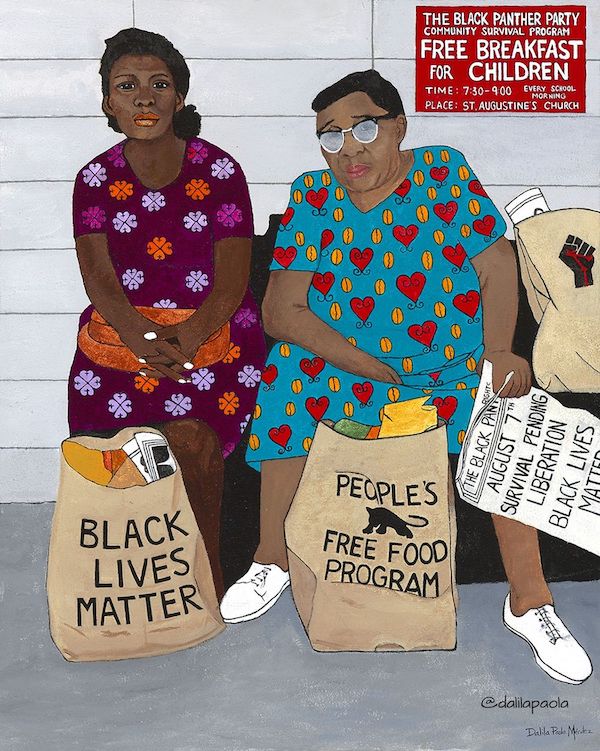In 1969, the Black Panther Party began its Free Breakfast for Children Program in Oakland, CA, providing healthy meals to hungry school kids in disenfranchized black neighborhoods. It quickly grew into a nationwide program and proved so successful that then FBI head J. Edgar Hoover declared it, “potentially the greatest threat to efforts by authorities to neutralize the BPP and destroy what it stands for.” Who knew eggs and milk were so dangerous? The Panthers’ free breakfast program is an example of food justice in action, the embodiment of the belief that everyone deserves equal access to healthy food. And while their program and members were attacked and killed by the Feds, their legacy lives on in the 14 million free breakfasts served up daily in American public schools.
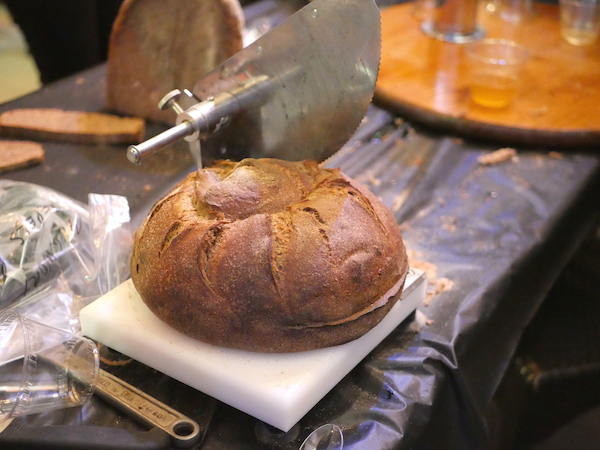
Leyna Lightman, “From Earth, to Farm, to Grain to Table” event at Craft Contemporary (formerly Craft and Folk Art Museum), 2018
According to The California Association of Food Banks, “California produces nearly half of the nation’s fruits and vegetables, yet one in eight Californians currently struggles with food insecurity, the occasional or constant lack of access to the food one needs for a healthy, active life.” Claudia Hernández Romero, who teaches courses on food politics and environmental justice at Otis College sums up the problem: “There is a great injustice in terms of who can access nutritious food [in Los Angeles] and who has adequate education about what to eat. For me, it’s an immediate emergent need.” In Los Angeles, local female artists and activists are responding with work that informs and creates much-needed change.
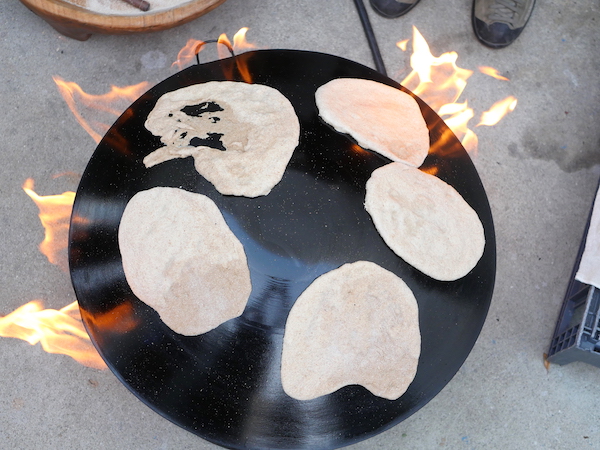
Leyna Lightman, “From Earth, to Farm, to Grain to Table” event at Craft Contemporary (formerly Craft and Folk Art Museum), 2018
In Dalila Paola Mendez’ painting Food Justice, two older women sit surrounded by stuffed grocery bags, one labeled “Black Lives Matter,” another “People’s Free Food Program.” Another has a clenched black fist dripping in blood. A huge advertisement from the Black Panther Party stating, “Survival Pending Liberation Black Lives Matter” hangs visibly from one woman’s hand, and a bright red sign advertising the Panthers’ free breakfast program takes up a third of the gray cement wall behind them. They wear dresses made of fabric designed with Ghanaian indigenous symbols representing how we learn from the past to create our future. Mendez’ work suggests that today’s Black Lives Matter movement must continue the work begun by the Panthers’ free food program. A former LAUSD teacher and master gardener, she says her painting is a reminder that, “We’re still dealing with these same issues now, 40 or 50 years later.” The struggle must be nourished and fed.
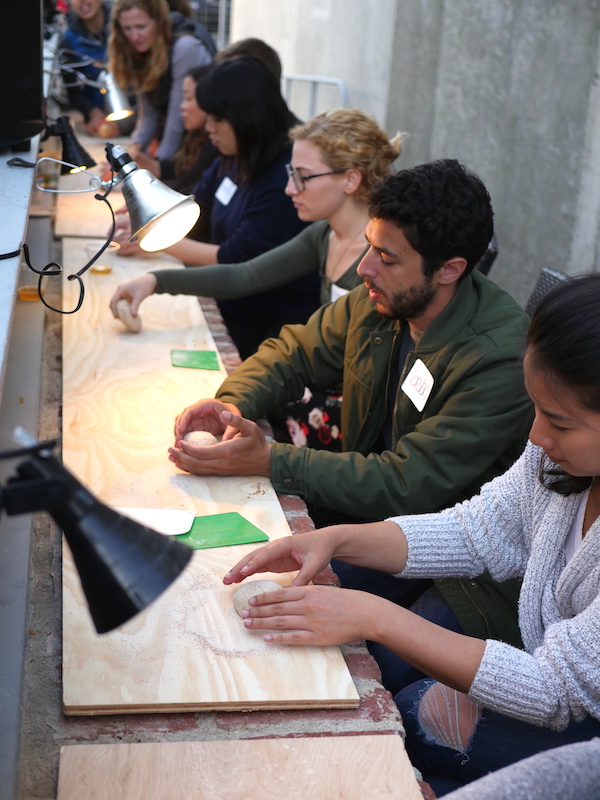
Leyna Lightman, “From Earth, to Farm, to Grain to Table” event at Craft Contemporary (formerly Craft and Folk Art Museum), 2018
Whereas Mendez’ work serves as a wakeup call, artist and curator Leyna Lightman directly addresses the urgent need to cultivate heirloom grains throughout the state of California. Heirloom grains are more nutritious than their processed GMO counterparts, free of corporate control and questionable long-term health ramifications. “Good grain is really new here,” says Lightman, whose recent project, “From Earth, to Farm, to Grain, to Table” at the Craft & Folk Art Museum aimed to show the many uses of just one single activated grain. For the project, she invited a beer brewer, a bread baker and a clay artist to participate, and each helped the museum visitors use the grain and their hands to make beer, bread and clay. This spring, Lightman will begin a collaborative art project that will build a communal, publicly accessible bread oven, reviving the early ancient communal ovens that sustained and sustain native peoples the world over, but in a very different urban context. “Once we build the oven, we will be activating it with a series of bread workshops,” she says. “I want to work with the youth who are not being nourished.” Imagine a teenager begging, “Mommm, can I go make some bread with my friends PLLLEEEAASEE!?!” and they aren’t talking about money. It can happen.
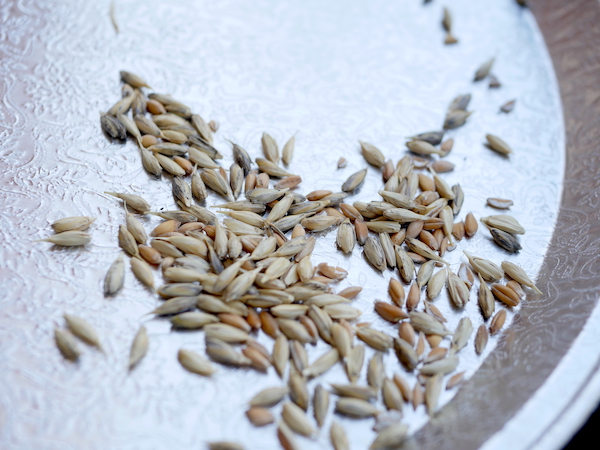
Leyna Lightman, “From Earth, to Farm, to Grain to Table” event at Craft Contemporary (formerly Craft and Folk Art Museum), 2018
It’s no coincidence that the food justice movement in Los Angeles is largely led by women. “As women, one of the roles we are supposed to fill is to give birth,” says Mendez. “When you’re working around food justice you realize how much life you are giving to the community by cultivating the earth.”
Lightman’s bread-baking workshops will be led by women from five different heritages from around the world. “These grains go back to the beginning of humanity,” she says. “I want to shine the spotlight on those breads and those grains, and I want women to lead the way.” Free breakfast was a good start, but lunch and dinner can be healthy and free too. It’s not as crazy as it sounds. All power to the people means feeding them too!

